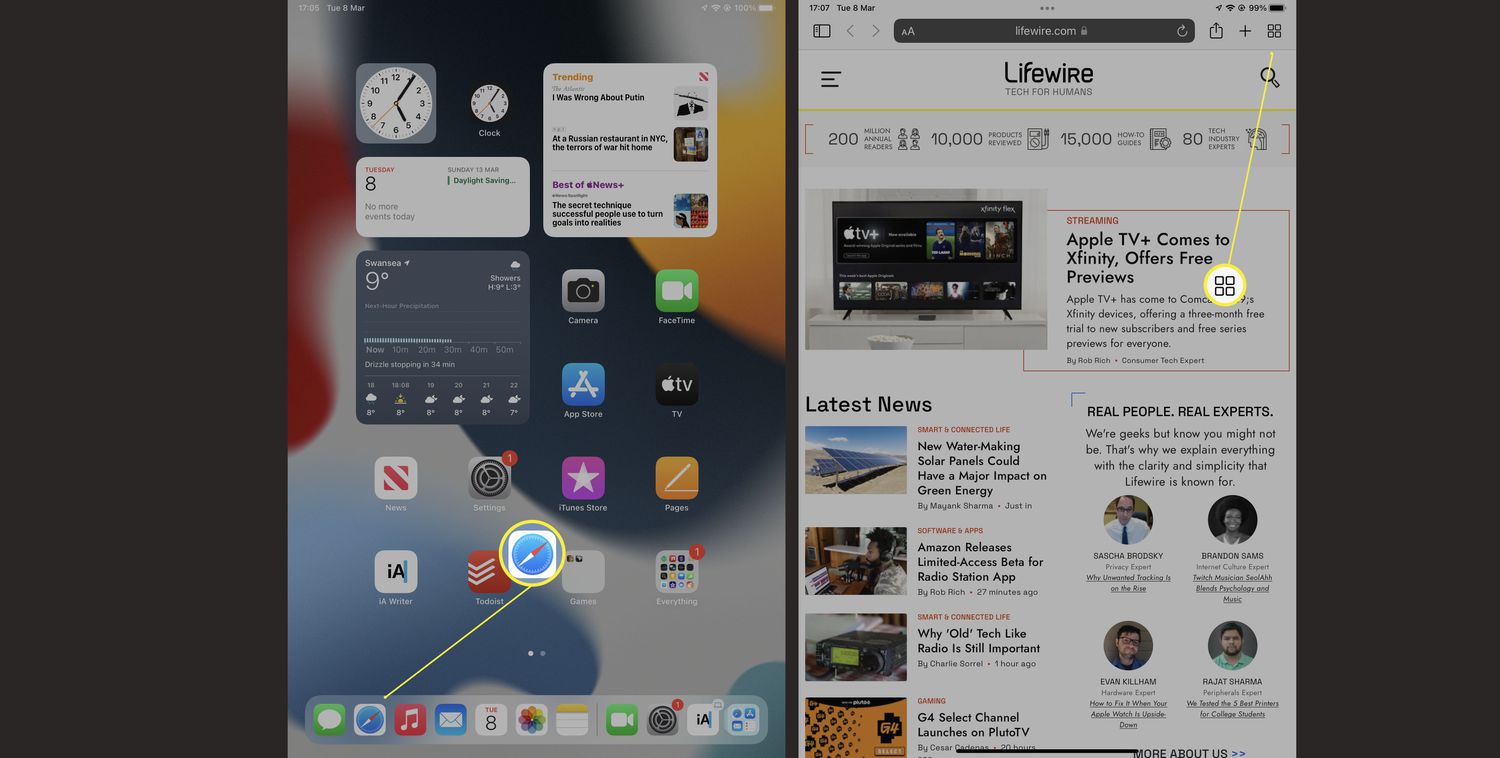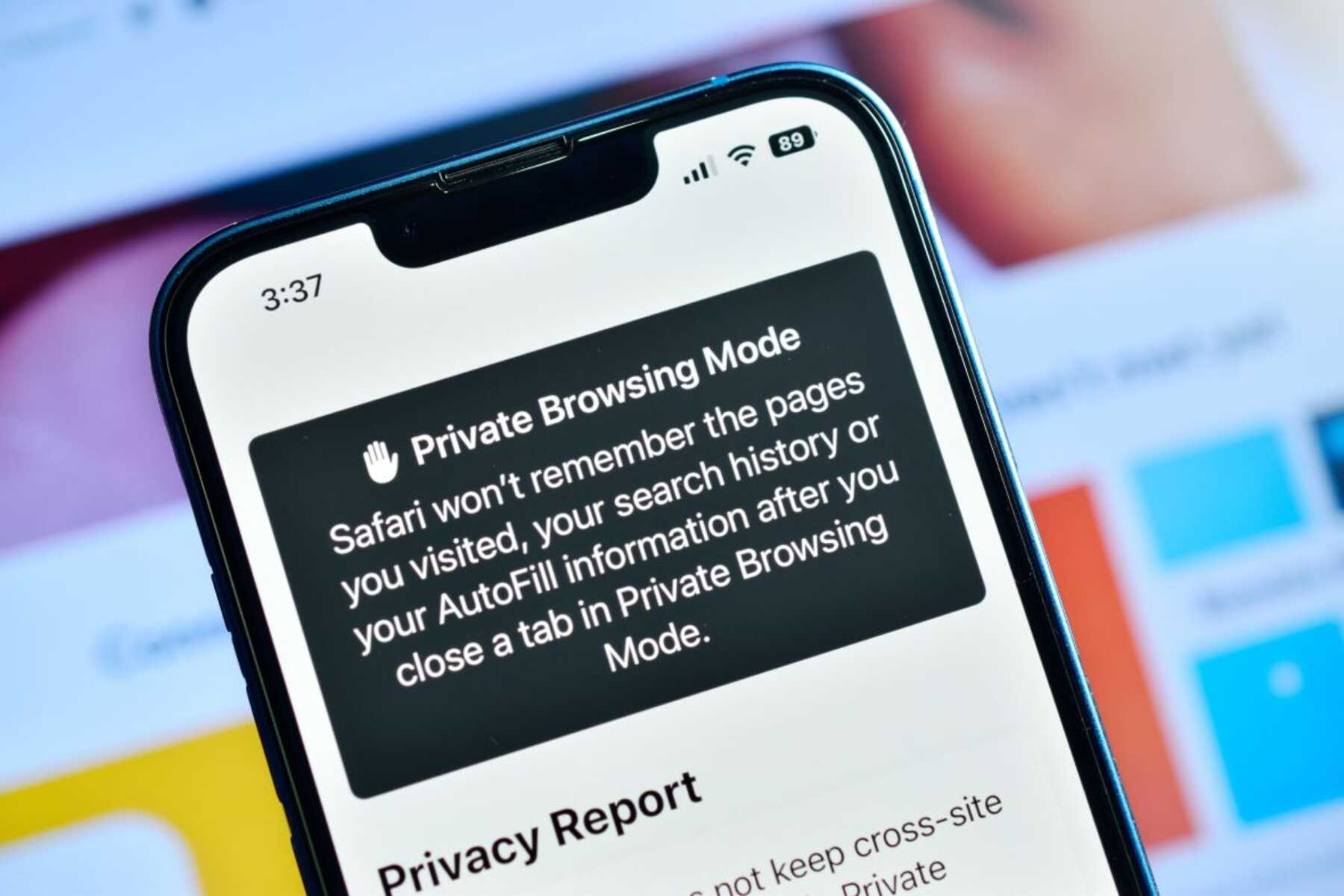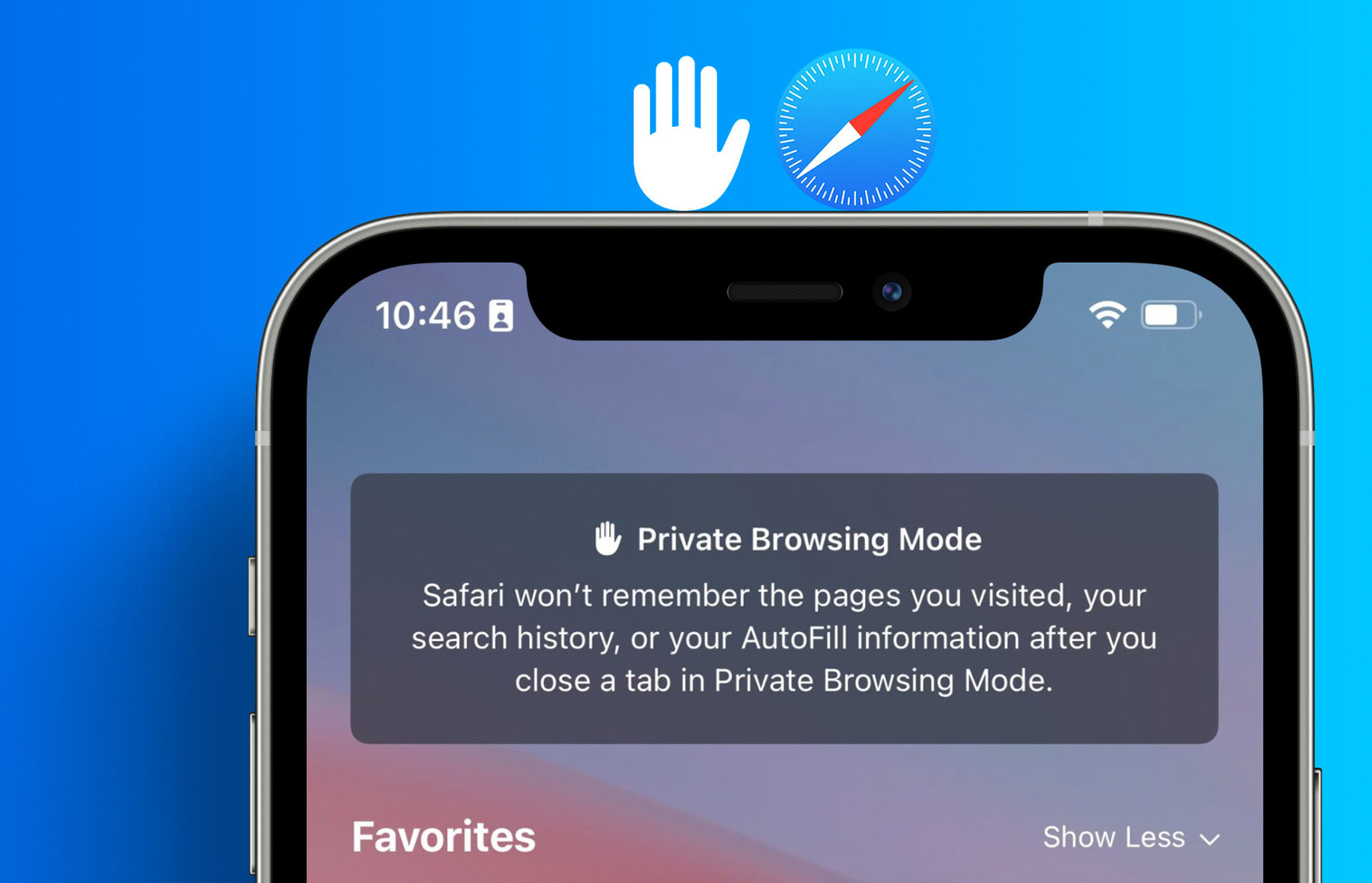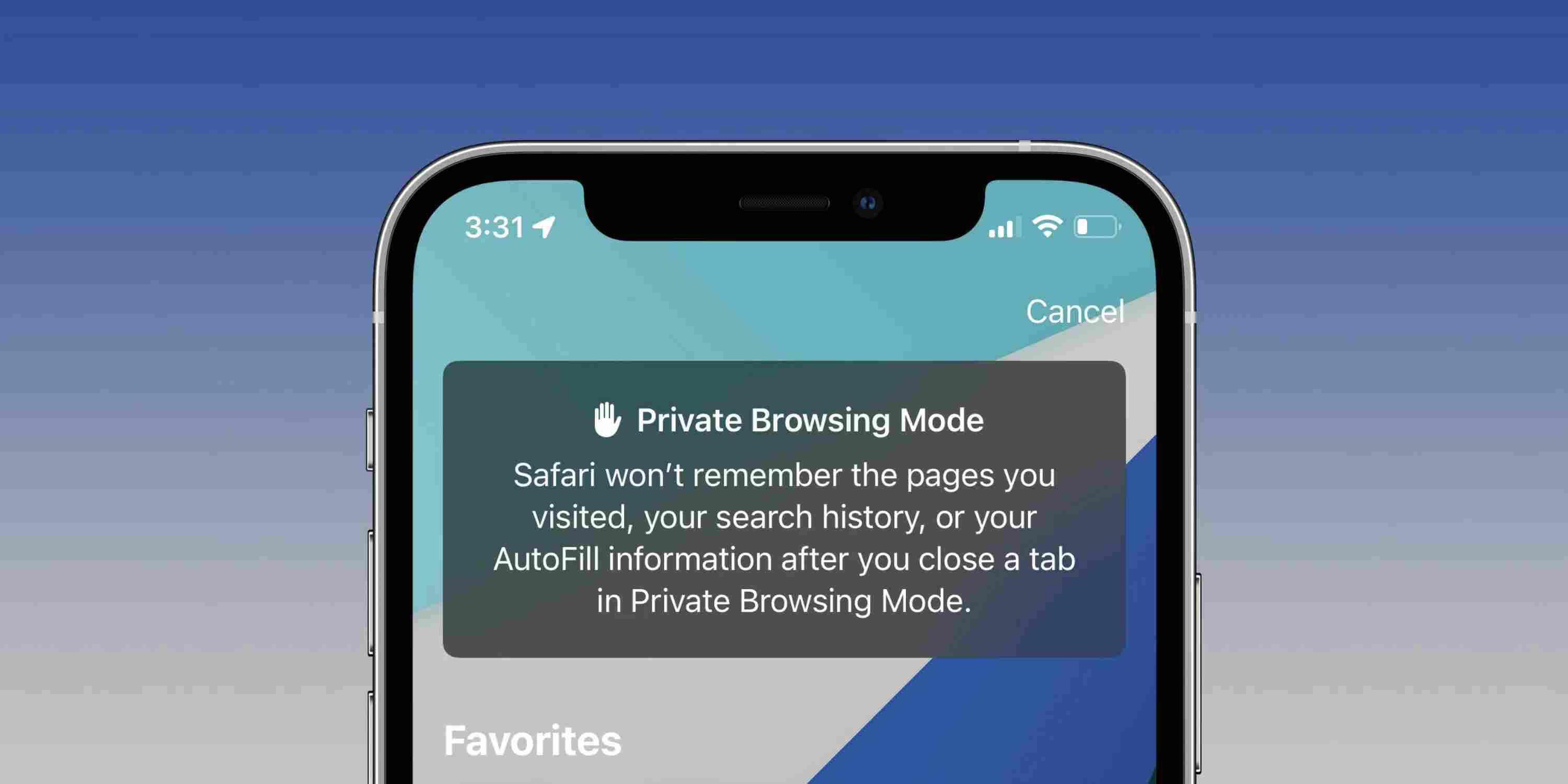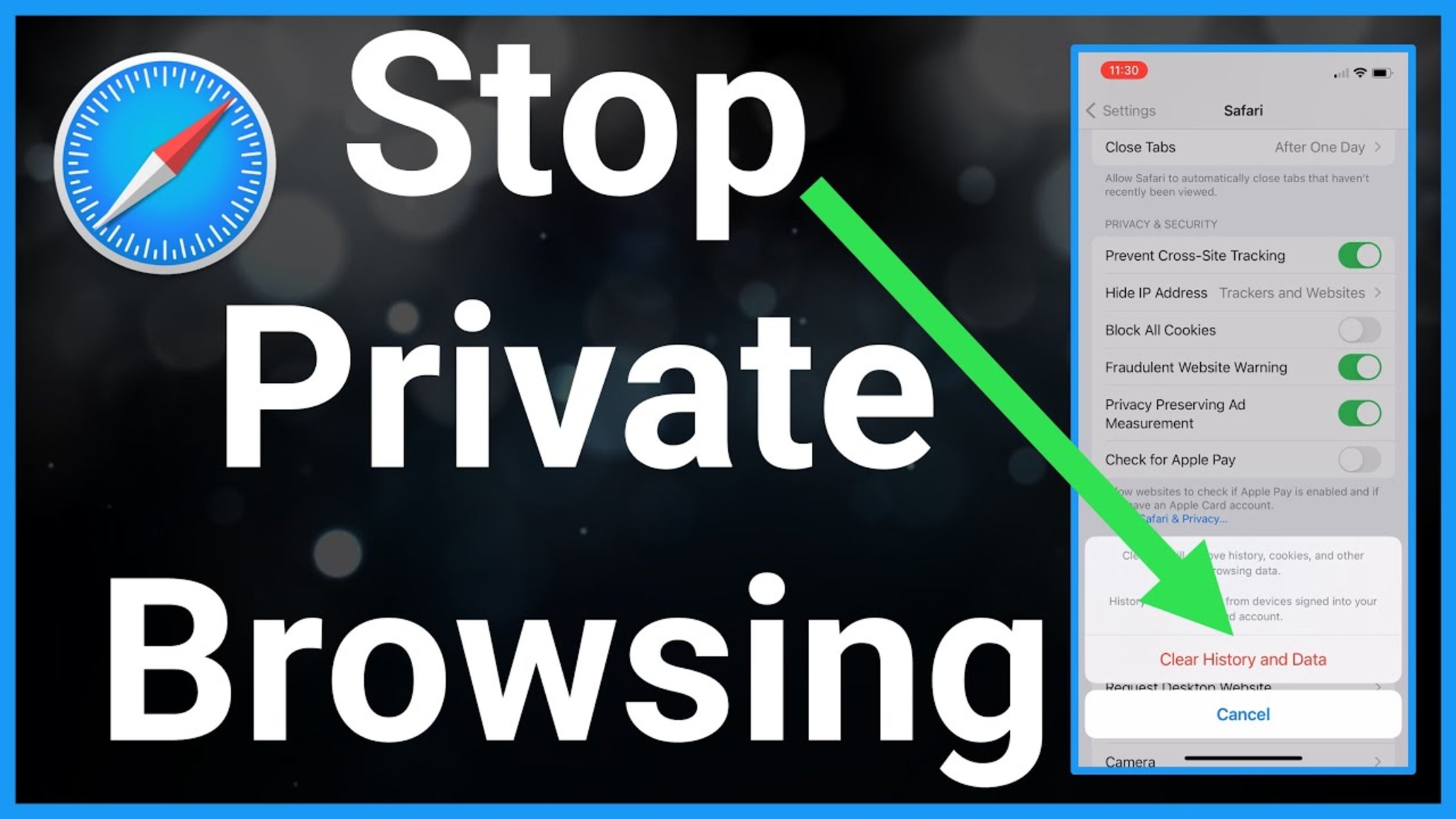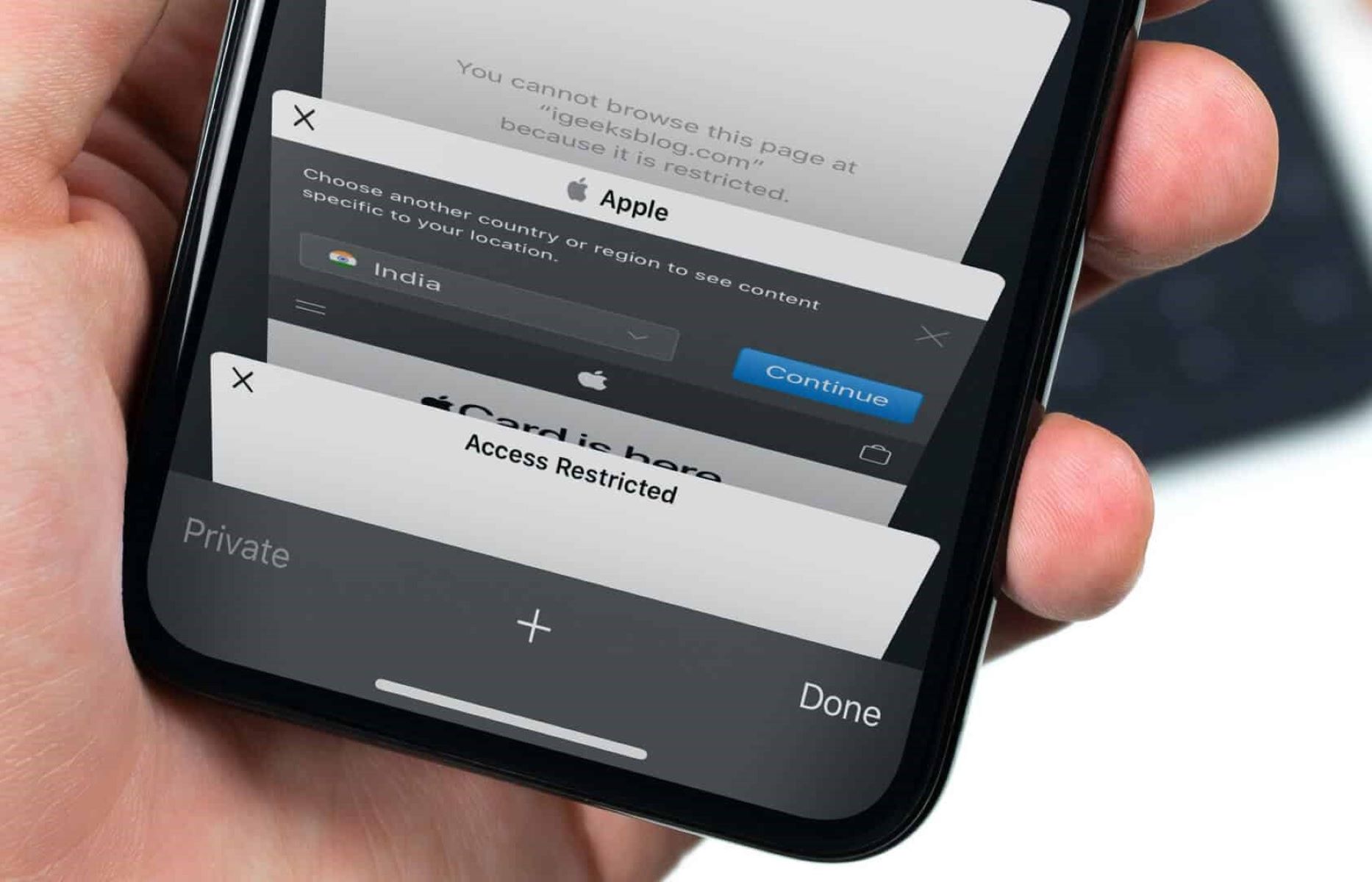Introduction
Safari Private Browsing, a feature offered by Apple's Safari web browser, has garnered significant attention for its promise of enhanced privacy and security. As internet users become increasingly mindful of their digital footprint, the concept of private browsing has become a focal point in the quest for online confidentiality. Safari's private browsing mode is designed to provide a layer of privacy by preventing the browser from storing browsing history, cookies, and other site data. This feature aims to offer users a sense of anonymity while navigating the web, shielding their online activities from prying eyes.
In this article, we will delve into the intricacies of Safari Private Browsing, exploring its functionality, limitations, and the extent of privacy it truly affords. By shedding light on the inner workings of this feature, we aim to equip readers with a comprehensive understanding of its capabilities and potential shortcomings. Additionally, we will provide valuable tips for maximizing privacy while utilizing Safari Private Browsing, empowering users to make informed decisions about their online security.
As we embark on this exploration, it's essential to recognize the evolving landscape of digital privacy and the pivotal role that web browsers play in safeguarding users' sensitive information. With cyber threats and data breaches on the rise, the need for robust privacy measures has never been more pressing. By examining Safari Private Browsing through a critical lens, we can discern its efficacy in shielding users from tracking, data collection, and other privacy concerns that permeate the online realm.
Join us on this journey as we unravel the nuances of Safari Private Browsing, dissecting its privacy features and uncovering the practical implications of its usage. Through this exploration, readers will gain valuable insights into the realm of private browsing and emerge equipped with the knowledge to navigate the digital landscape with heightened privacy and security.
What is Safari Private Browsing?
Safari Private Browsing, a feature integrated into Apple's Safari web browser, serves as a sanctuary for users seeking a discreet online experience. When activated, this mode operates as a shield, preventing the browser from retaining a record of the user's browsing history, search history, and the data entered into online forms. This means that any websites visited, searches conducted, or form inputs made during a private browsing session will not be stored for future reference.
The primary objective of Safari Private Browsing is to offer users a confidential browsing environment, free from the constraints of persistent tracking and data retention. By refraining from storing browsing history and cookies, Safari Private Browsing aims to mitigate the risk of inadvertently disclosing sensitive information to subsequent users of the same device or to unauthorized parties.
In addition to shielding browsing activity from being logged locally, Safari Private Browsing also prevents websites from storing cookies and other data that could be used to track user behavior across different sites. This aspect of the feature is particularly valuable in mitigating the pervasive tracking mechanisms employed by various online entities to monitor and profile user activities.
Furthermore, Safari Private Browsing operates independently of the standard browsing mode, ensuring that any data generated during a private session remains isolated from the regular browsing environment. This demarcation serves to safeguard the user's privacy by creating a distinct digital realm where browsing activities are not intertwined with the conventional browsing history or stored data.
In essence, Safari Private Browsing functions as a protective enclave within the Safari browser, offering users a reprieve from the persistent digital footprints typically associated with online navigation. By creating a temporary and isolated browsing environment, this feature empowers users to explore the web with a heightened sense of privacy and discretion, shielding their online activities from being memorialized within the browser's archives.
As we unravel the intricacies of Safari Private Browsing, it becomes evident that this feature embodies Apple's commitment to empowering users with tools to safeguard their digital privacy. However, to truly comprehend the extent of privacy afforded by Safari Private Browsing, it is imperative to delve deeper into its operational mechanisms and the potential limitations that may impact its efficacy.
How Private is Safari Private Browsing?
Safari Private Browsing, touted as a bastion of online privacy, raises the fundamental question: How private is it, truly? While this feature offers a commendable layer of privacy by refraining from storing browsing history, search history, and form data, its privacy scope is not absolute. It's crucial to recognize that Safari Private Browsing primarily focuses on concealing the user's activities from being recorded locally within the browser. However, it does not render users completely anonymous or impervious to external tracking and monitoring.
One of the key aspects that underscore the privacy limitations of Safari Private Browsing is its inability to mask the user's IP address. The IP address, a unique identifier assigned to each device connected to the internet, can still be captured by websites and network intermediaries even when using private browsing mode. This means that while Safari Private Browsing prevents the storage of local browsing history, it does not obfuscate the user's digital footprint to the extent of concealing their IP address, which can be leveraged to track their online activities.
Moreover, Safari Private Browsing does not shield users from the watchful eyes of internet service providers (ISPs) and network administrators. These entities can potentially monitor the user's online traffic and glean insights into their browsing habits, irrespective of whether private browsing mode is active. As such, while Safari Private Browsing offers a degree of privacy within the confines of the browser, it does not provide comprehensive protection against external surveillance by ISPs and network administrators.
Another noteworthy consideration pertains to the limitations of Safari Private Browsing in safeguarding against certain types of tracking technologies. While it prevents websites from storing cookies and local data, it may not fully mitigate the use of alternative tracking methods such as browser fingerprinting. Browser fingerprinting involves gathering unique attributes of the user's device and browser configuration to create a distinctive digital fingerprint, which can be utilized for tracking purposes. Safari Private Browsing may not offer robust defenses against such advanced tracking techniques, thereby underscoring its privacy constraints in certain contexts.
In essence, while Safari Private Browsing offers a commendable level of privacy by preventing the retention of local browsing history and cookies, it is essential for users to recognize its inherent limitations. This feature serves as a valuable tool for shielding browsing activities from being stored within the browser, but it does not provide a comprehensive cloak of anonymity or protection against external tracking mechanisms. By understanding the nuanced privacy scope of Safari Private Browsing, users can make informed decisions about their online privacy and adopt supplementary measures to bolster their digital security.
Limitations of Safari Private Browsing
While Safari Private Browsing stands as a commendable feature for preserving privacy, it is imperative to acknowledge its inherent limitations. Understanding these constraints is pivotal in forming a comprehensive perspective on the efficacy of this privacy tool.
One notable limitation of Safari Private Browsing pertains to its inability to conceal the user's IP address. Despite preventing the storage of local browsing history and cookies, this feature does not obscure the user's IP address, which serves as a unique identifier for their internet-connected device. Consequently, websites and network intermediaries can still capture the user's IP address, potentially compromising their anonymity and enabling tracking of their online activities.
Furthermore, Safari Private Browsing does not shield users from the scrutiny of internet service providers (ISPs) and network administrators. These entities retain the capability to monitor the user's online traffic and glean insights into their browsing behavior, irrespective of the activation of private browsing mode. As a result, the privacy safeguards offered by Safari Private Browsing are confined within the browser's domain and do not extend to shielding users from external surveillance by ISPs and network administrators.
In addition, Safari Private Browsing may not provide robust defenses against certain advanced tracking techniques, such as browser fingerprinting. While it effectively prevents the storage of cookies and local data, it may not fully mitigate the use of browser fingerprinting, which involves capturing unique attributes of the user's device and browser configuration to create a distinctive digital fingerprint for tracking purposes. This limitation underscores the need for users to remain cognizant of the potential gaps in privacy protection when relying solely on Safari Private Browsing.
Moreover, it is essential to recognize that Safari Private Browsing does not offer protection against malware, phishing attempts, or other online threats. While it aims to safeguard the user's browsing history and data from being stored locally, it does not serve as a comprehensive security solution for defending against malicious entities seeking to compromise the user's online security.
In essence, while Safari Private Browsing presents a valuable mechanism for preventing the retention of local browsing history and cookies, it is crucial for users to be mindful of its limitations. By acknowledging these constraints, users can make informed decisions about their privacy practices and consider supplementary measures to fortify their digital security beyond the confines of private browsing mode.
Tips for Enhancing Privacy while Using Safari Private Browsing
-
Use a Virtual Private Network (VPN): Employing a reputable VPN service can significantly bolster privacy when using Safari Private Browsing. A VPN encrypts the user's internet traffic and routes it through a secure server, masking their IP address and shielding their online activities from prying eyes. This added layer of anonymity complements the privacy features of Safari Private Browsing, enhancing the user's digital confidentiality.
-
Regularly Clear Website Data: In conjunction with Safari Private Browsing, regularly clearing website data, including cookies and cached files, can further diminish the digital footprint left behind. By eradicating residual data from previous browsing sessions, users can minimize the potential for tracking and data retention, reinforcing their privacy safeguards.
-
Enable Content Blockers: Leveraging content blockers within Safari can mitigate the intrusion of online trackers and intrusive advertisements, fostering a more private browsing experience. These blockers can curtail the dissemination of user data to third-party entities, aligning with the overarching goal of preserving privacy while navigating the web.
-
Exercise Caution with Extensions: While Safari extensions can enhance browsing functionality, users should exercise prudence when installing and utilizing them during private browsing sessions. Some extensions may compromise privacy by collecting user data or circumventing the protective measures of private browsing. Prioritizing reputable and privacy-conscious extensions is paramount in maintaining a secure and confidential browsing environment.
-
Stay Informed about Privacy Settings: Familiarizing oneself with Safari's privacy settings and features empowers users to optimize their privacy configurations. Understanding the nuances of privacy-related options within the browser enables users to tailor their settings to align with their privacy preferences, fortifying their digital defenses.
-
Implement Two-Factor Authentication: Safeguarding online accounts with two-factor authentication adds an extra layer of security, complementing the privacy measures undertaken during private browsing. By fortifying account security, users can mitigate the potential impact of privacy breaches and unauthorized access, reinforcing their overall digital privacy posture.
-
Exercise Discretion with Personal Information: Practicing discretion when entering personal information during private browsing sessions is pivotal in preserving privacy. Minimizing the disclosure of sensitive data reduces the likelihood of it being stored or exploited, aligning with the ethos of private browsing and bolstering user privacy.
By integrating these proactive measures with Safari Private Browsing, users can cultivate a more resilient and privacy-centric online experience, mitigating the inherent limitations of private browsing and fortifying their digital privacy in an increasingly interconnected digital landscape.









